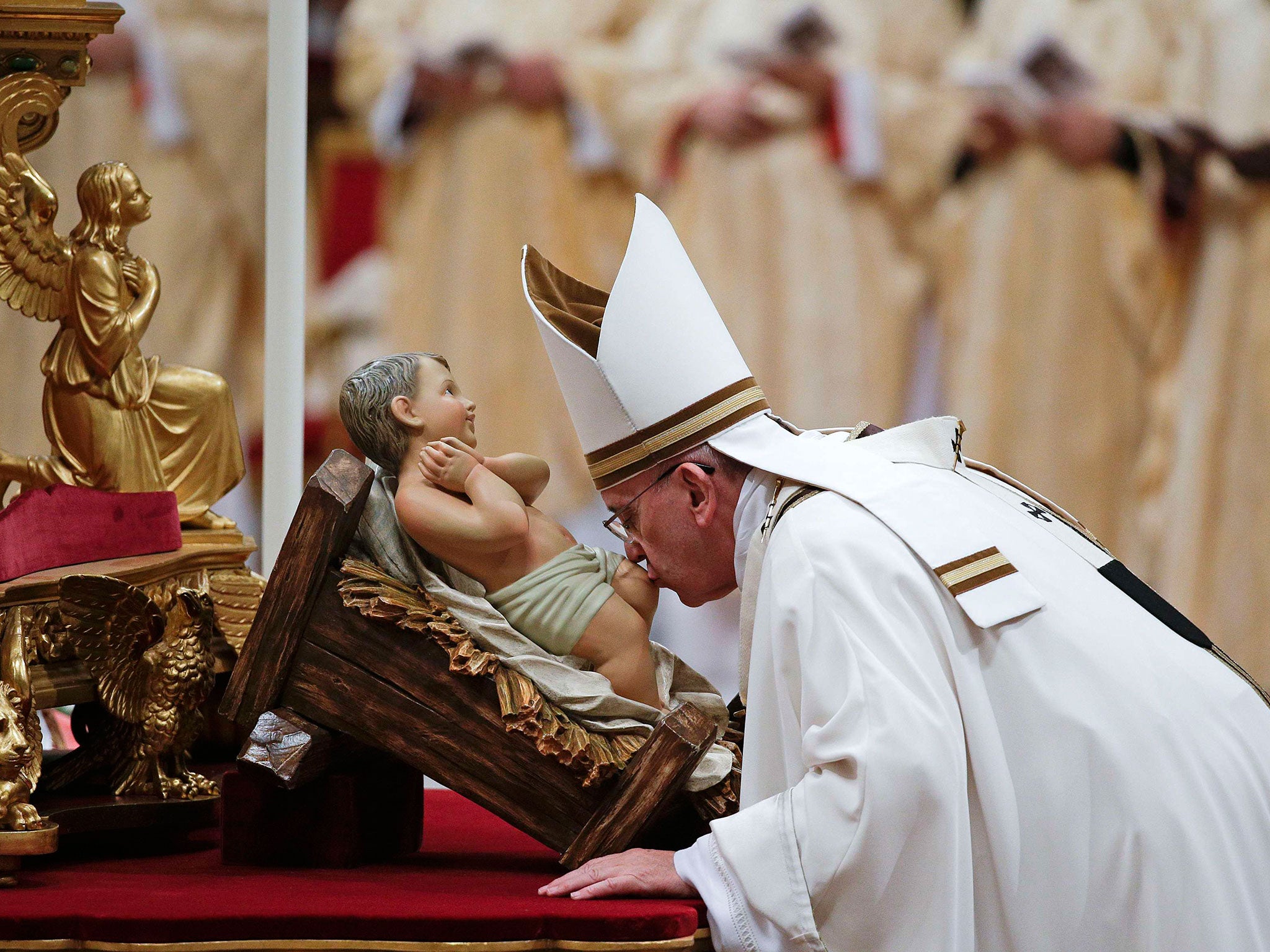Press attack on Pope Francis is nothing more than Vatican old-timers seeking revenge for Church reforms
Francis has in fact moved very slowly on the issues most dear to liberal Catholics


Pope Francis, who in his first Mass of the new year called for an end to war and slavery, has put a spring in the step of the Catholic Church since his election nearly two years ago. But now the backlash has begun.
It started, coincidentally or not, two days after a recent, devastating assault by the pontiff on the vices of the senior Vatican officials who surround him.
Addressing the Curia in the magnificent setting of the Clementina Hall, the first Latin American Pope took no prisoners. Itemising the faults of the senior prelates he was addressing, he listed “feelings of immortality, immunity or indispensability, deriving from a pathology of power” and what he called “spiritual Alzheimer’s” in which Vatican bosses lose their memory of “meeting the Lord” and “depend entirely…on their passions, their whims and manias…becoming slaves of idols…” He described how “the terrorism of gossip” can “kill the reputation of our colleagues and brothers in cold blood”. Other ailments included having “a hardened heart”, “a funereal face”, and being “too rigid, tough and arrogant”.
The reaction came two days later. In the Corriere della Sera newspaper, Vittorio Messori, Italy’s best-known Catholic writer, wrote of his feelings of “perplexity” about the Pope, and the fact that “even some of the cardinals who were among his electors” were having second thoughts about him.
But the force of Messori’s piece was in his claim that “il cattolico medio” – “the average Catholic” – finds the Pope’s “unpredictability” disturbing. Messori contrasted the traditional tone of the Pope’s morning sermons with the warm wishes he sent to Italy’s most sensational campaigner for liberal causes including legalised abortion and divorce; then drew attention to his alleged claim that the Catholic Church has no monopoly on God and to his friendship with a pastor belonging to one of the Church’s Protestant rivals in Latin America.
The attack was disingenuous. Despite his informal tone, Francis has in fact moved very slowly on the issues most dear to liberal Catholics, such as divorce and the role of women in the church. Where Francis has shown speed, resolution and determination is in tackling the corruption and arrogance of the Vatican establishment. And it is that, not the notional views of “the average Catholic”, which explains the fierce reaction.
From the outset, Francis spurned the papal creature comforts. He chose to live in a Vatican hostel instead of the papal apartments above St Peter’s Square. He prefers to travel in the sort of cars that the average Catholic drives. Such choices have set a tone of elective poverty, in imitation of Christ. But they also had a practical effect: they minimised his exposure to the machinations of the Vatican bureaucracy.
The Pope, any Pope, is a monarch. But he is also a sort of hostage. Arriving in the job late in life, presented with a staggering workload, he is bound to leave many practical details to the staff, the lifetime bureaucrats of the Curia.
Francis has adopted a number of ploys to limit their power, drafting in foreign laymen to tackle corruption, sloth and redundancy in finance and other departments. But now the old stagers are showing their teeth. Hence the Pope’s full-frontal attack on the Curia.
One wishes Francis well. Anyone who has had dealings with the Vatican bureaucrats has an idea of what he is up against – those hard faces and hearts, all that pride lurking below the rhetoric of humility.
Francis has moved mountains in the first two years of his papacy. His astute brokering of peace between Castro and Obama was one of 2014’s diplomatic triumphs. He is on the way to radically overhauling the Church’s image; can he also vanquish the big beasts of the Curia? Does he have enough years, enough friends?

Join our commenting forum
Join thought-provoking conversations, follow other Independent readers and see their replies